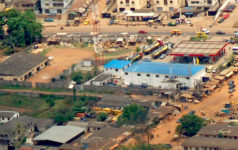Dalberg uses cookies and related technologies to improve the way the site functions. A cookie is a text file that is stored on your device. We use these text files for functionality such as to analyze our traffic or to personalize content. You can easily control how we use cookies on your device by adjusting the settings below, and you may also change those settings at any time by visiting our privacy policy page.
Nigeria has experienced a sustained period of economic growth in the last decade without a corresponding improvement in employment. Twenty-five percent of the labour force are either unemployed or underemployed, casting a gloomy prognosis on the country’s future. The depth of Nigeria’s unemployment crisis is particularly evident amongst youths, with two in five youths between the ages of 15 and 35 affected. With an economy at risk of a recession in the face of dwindling oil prices, tackling youth unemployment is an urgent imperative. Nigeria needs to create many more jobs (and many more jobs of decent quality) as young people continue to join the workforce en masse over the next 8 – 10 years. In response to the need for a strategic approach to job creation, a Job Creation Unit (JCU) has been set up within the Presidency to effectively coordinate activities and interventions aimed at driving near to medium-term job creation across Nigeria. The role of the JCU will be to coordinate, facilitate and elevate promising growth strategies within specific clusters of economic activity that have been targeted to stimulate job creation. This unit has led a collaborative effort involving stakeholders from across the public, private and civil sectors, to develop a strategic framework to underpin the country’s approach to tacking job creation and youth unemployment over a three year period (2016 – 2018).
The strategic framework has five key thrusts:
1. Selection of priority economic sectors as anchor sectors to which policy and programmatic interventions will be directed to catalyse job creation within and beyond the sectors
2. Identification of specific geographical clusters of focus within each of the defined anchor sectors in order to leverage existing comparative advantages within the clusters, optimize resource allocation, and ensure equitable distribution of job creation interventions across Nigeria’s regions
3. Defining specific interventions to address skill development issues and talent supply gaps to ensure that the local labour force can fill available and emerging job positions in the short to medium term
4. Identification of policy and infrastructure enablers required to address structural constraints, to attain competitiveness across each of the focus sectors in the long term
5. Coordinated implementation of defined interventions across federal and sub-national governments, driven by the Job Creation Unit, a coordination hub in the Presidency, resourced by stakeholders from the private, public and development sectors









